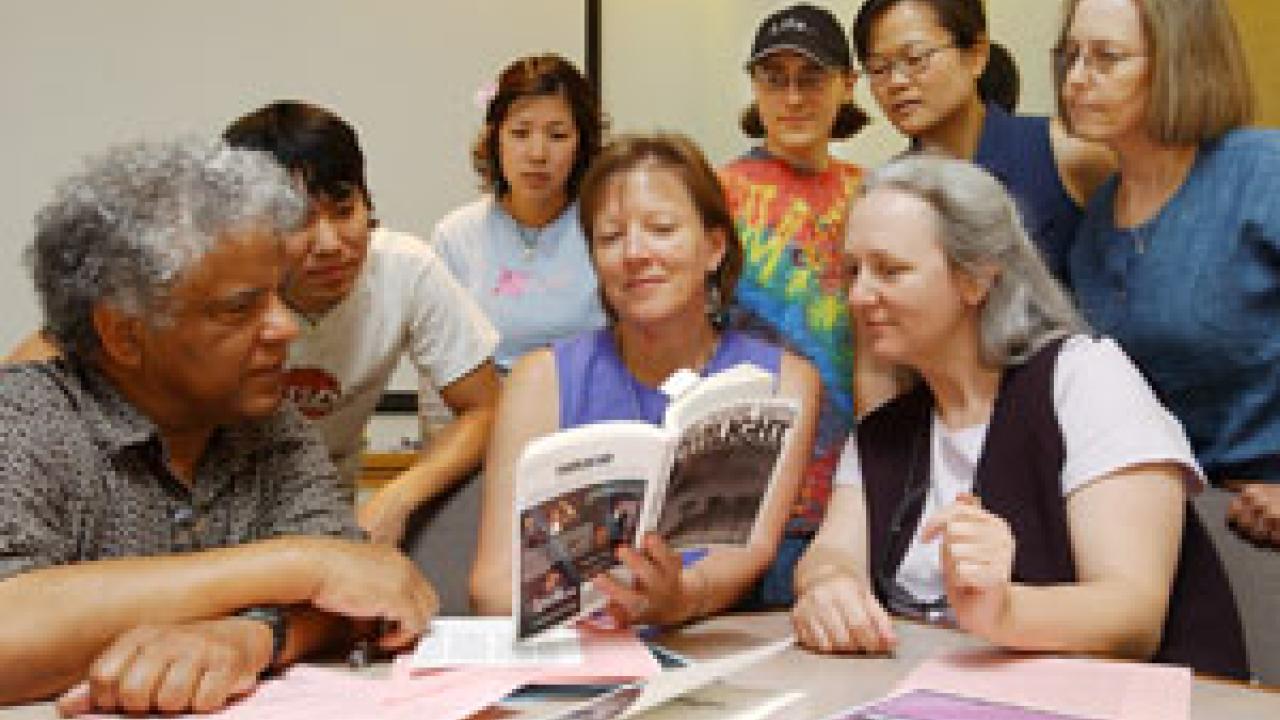Twilight is falling on UC Davis.
This fall, the campus will look back on one of the more controversial court cases in recent years and its impact on the general public. Anna Deavere Smith's Twilight: Los Angeles, 1992, a play about the riots following the Rodney King trial, has been selected for the third annual Campus Community Book Project.
Though the book draws on events from the early '90s, its theme is timeless, book project organizers say.
"The issues Twilight deals with -- racism and racial construction in society -- aren't issues of the past, but are current and exist in Davis," said graduate student Sheri Tatsch, a member of the book project committee.
Since the announcement of the title in February, the committee has been planning a host of events to accompany the book project. A film version of Twilight, which debuted at the Sundance Film Festival in 2000, will show multiple times, and the committee plans to bring Deavere Smith to campus in November to perform excerpts of the play and talk about her experiences. In addition, a number of book discussions and other related events that will be open to the community are being planned.
The department of Theatre and Dance also will perform The Laramie Project, a similarly formatted play that details the murder of Mathew Shepard, a young gay man, in Laramie, Wyo. The play will run fall quarter in Mondavi Center.
Twilight, presented in the form of a series of monologues from a multitude of voices, is based on close to 200 interviews conducted by Deavere Smith after the King verdict was announced in 1992. To present as many perspectives as possible, Deavere Smith's subjects varied from Korean shopkeepers to minority gang members to white politicians.
The work was one of dozens of books considered by the book project committee -- made up of about 30 members.
"There were so many good choices that stood out just as much," said committee member Lynn Narlesky, a communicator in the School of Veterinary Medicine.
But Twilight has its own unique qualities that lifted it over the top, said committee chair Karen Roth, coordinator for diversity awareness education program.
"We really liked the format of the book because it's meant to be performed," she said. "It uses theater to highlight social justice issues."
"We wanted a lively read that was more accessible and would tackle the big questions," added selection committee member Alison Kent, an editor at the Wildlife Health Center.
Roth also pointed out the book's relevance to the campus because of the way it exemplifies "how a community can become so fractured when racial and economic justice is ignored."
Because Twilight is created from the words of people who directly witnessed the riots of 1992, it is a very intimate account, Narlesky said. "It brings back the chaos of a time with the immediacy of people's own words," she said. "The author has had the talent to turn that chaos into art."
Sociology professor Carl Jorgen-sen is another proponent of the book. He has used Twilight in his Interracial Interpersonal Dynamics class because of its multi-faceted view of the riots. Jorgensen believes the book will appeal to a large portion of the community. "There's a lot of inflammation in the book between African Americans, Koreans, Latinos, Chicanos and whites," he said. "Almost everybody's ethnicity is represented, and almost everyone's ethnicity was negatively affected by the incident."
"Davis is just as susceptible to the issues in Twilight as anywhere else," added Kent. "We do have race issues here."
The work has been widely acclaimed. Among other honors, it has received two Tony nominations, an Obie, a Drama Desk award, and two NAACP theater awards. Deveare Smith is a playwright and actress most recognized for her role as Nancy McNally on TV's "The West Wing."
This year, according to Roth, the committee is encouraging people to get involved in book project events early. Twilight is being offered for a discount price of $9.95 at the UC Davis Bookstore, and there are plans to show the film in May and during the summer to pique the interest of the community.
"This book project is going to be a challenge," Kent said. "We're hoping people will become more willing to look within themselves and face the things living in there that it may be more comfortable not to face."
The committee also hopes to keep the campus actively thinking about the themes of the book not just through fall quarter but through other projects even after this year's book project is officially over, said Roth, noting, "This is a problem that's not going to go away."
More book project information can be found at http://occr.ucdavis.edu/bookproject.html.
